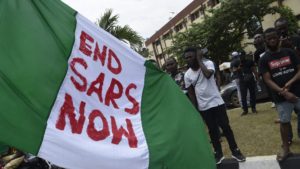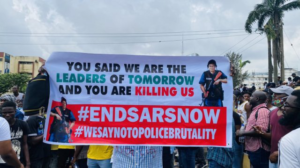The United States Department of States says it could not verify if #EndSARS protesters were killed on October 20, 2020, at the Lekki tollgate. It made this known in a report tagged ‘2020 Country Reports on Human Rights Practices: Nigeria’.

A copy of the report was made available to newsmen on Tuesday. The report said though soldiers fired ammunition into the air to disperse protesters, the number of fatalities could not be verified.
Part of the report read, “On October 20, members of the security forces enforced curfew by firing shots into the air to disperse protesters, who had gathered at the Lekki Toll Gate in Lagos to protest abusive practices by the Nigerian Police Force’s Special Anti-Robbery Squad.
“Accurate information on fatalities resulting from the shooting was not available at year’s end.
“Amnesty International reported 10 persons died during the event, but the government disputed Amnesty’s report, and no other organization was able to verify the claim. The government reported two deaths connected to the event.
“One body from the toll gate showed signs of blunt force trauma. A second body from another location in Lagos State had bullet wounds.
“The government acknowledged that soldiers armed with live ammunition were present at the Lekki Toll Gate. At year’s end, the Lagos State Judicial Panel of Inquiry and Restitution continued to hear testimony and investigate the shooting at Lekki Toll Gate.”
The report also said there are significant human rights abuses which included unlawful and arbitrary killings by both government and non-state actors.
It added, “According to credible international organizations, before their dissolution, SARS units sometimes used torture to extract confessions later used to try suspects. President Buhari disbanded SARS units in October following nationwide #EndSARS protests against police brutality.
“Of the states, 28 and the FCT established judicial panels of inquiry to investigate allegations of human rights violations carried out by the Nigerian Police Force and the disbanded SARS units.

“The panels were made up of a diverse group of civil society representatives, government officials, lawyers, youth, and protesters with the task of reviewing complaints submitted by the public and making recommendations to their respective state government on sanctions for human rights violations and proposed compensation for victims. The work of the judicial panels continued at year’s end.”